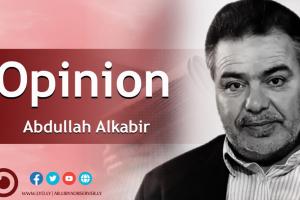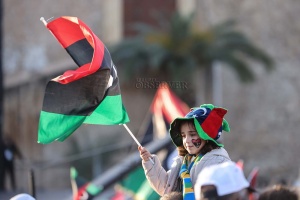By Abdullah Alkabir, a Libyan political writer and commentator
Continued attempts to circumvent elections

The Speaker of the House of Representatives, Aqila Saleh, has fulfilled his promise, and threw at the High Council of State (HCS), a constitutional amendment labelling it No. 13, with a broad and accurate details of the conditions for running for parliamentary elections, for both House of Representatives (HoR) and the Senate, as well as their tasks, and number of members in each house.
However, the amendment did not refer to the conditions for candidacy for the position of president, which is key and the only point of contention, according to previous statements by members of HoR and the HCS. The head of the HCS announced at a joint press conference with the Speaker of HoR, early January in Cairo, that they agreed to hold a referendum on the candidacy of people with dual nationalities and the military people, as a way out of this hurdle.
Before Aqila’s obviously unsurprising move, the HCS identified, in its last session, a list of names nominated to occupy some sovereign positions, and referred them to the HoR to choose one name for each position, in a practical application of what one of the representatives described as “clever theft”, that is enabling close personalities with guaranteed loyalty and trust, and partially empowering them with important positions in a move that seems not to attract much attention.
Focusing on the file of sovereign positions at this time, despite international and local pressures on the two chambers, and their call to focus on the legal basis for the elections, does not at all indicate the seriousness of the main blocs in both chambers to leave the scene, and hand over tasks to a new, unified legislative authority through elections. Indeed, whoever is seriously preparing to leave, s/he will not focus on topics that are completely far from what the effort and work should be focused on. Is it right, for example, for a tenant of a house which s/he will leave in a few months, to work on changing doors and windows of its rooms, without any justification?
Complexity of the presidential elections, lies in enable a criminal, deeply blood-soaked, involved in killing and destruction to run for presidential elections, and to narrow the field for any potential competitor, a matter which is rejected by the prevailing current in the HCS.
The main dish on the dining table of sovereign positions is the post of the governor of the Central bank of Libya. The bargaining between Aqila and Al-Mashri is based on Aqila’s fulfillment of the legal basis for elections, in exchange for granting him the nomination of a central bank governor loyal to him. The bargain, however, has not and will not be completed.
The election’s complexity will not be bypassed by Aqila’s insistence on opening the door for candidacy for military and persons with dual nationalities, while Al-Mashri waits to approach the screening of candidates for the position of governor. Their move is a compulsory response to international pressure, to show that steps are being taken on the road to consensus.
This fake progress was neither welcomed by the international parties, insisting on holding the elections, nor convinced the UN envoy, Abdoulaye Bathily, because he tweeted two days later calling on Aqila and Al-Mashri to facilitate the holding of elections, through a clear and enforceable agreement on a constitutional framework.
It seems there is no any breakthrough in the path of political transformation through the HoR and the HCS, and since there are no indications of a widespread popular uprising, which could drive everyone to submit to the will of the people for change through elections, and to end a decade of divisions and chaos, unless such uprising coincides with the celebrations of the anniversary of the February Revolution, with a large, continuous demonstrations at an escalating pace. Otherwise, the attention will turn to the briefing of the UN envoy before the UN Security Council at the end of this month, and the alternatives he will present to get out of the impasse, and bypass the obstructing entities and personalities.
Disclaimer: The views and opinions expressed in this article are those of the writer, and do not necessarily reflect those of the Libya Observer



